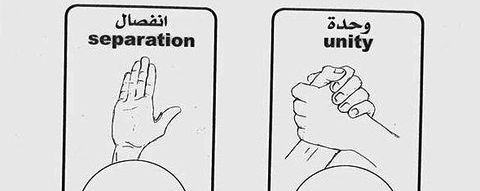Ngok Dinka of Abyei began voting on Sunday in a ‘unilateral’ referendum on whether to split from Sudan and join South Sudan.
Voters turned out in the thousands at 29 voting centers across the Abyei region, 4 of which were in Abyei town.
Ballots were printed with two symbols: a sign of two hands clasped and another one of one hand alone. The former symbol meant continued unity with Sudan, the latter separation from Sudan.
Each voter first checked for his or her name at a table with registration lists, then was given the ballot paper and marker pen before being sent to a separate place to cast the vote. The voter marked his or her choice with a pen or thumbprint.
“When I look at the system of voting today, it is similar to what happened to the South Sudanese” during the 2011 vote for independence, said a Radio Tamazuj correspondent who was on the scene throughout the first day of voting.
“They are not using the ‘karamojang’ system where people line up in a queue,” he added, referring to a traditional, non-secret method of counting votes.
Voting will be concluded over a three-day period.
Recognition of the poll
The poll defies objections by the governments of Sudan and South Sudan, as well as the African Union, amid concerns that it could destabilize bilateral relations between the two countries as well as with the neighboring Misseriya tribe.
South Sudan’s government has warned that it will not consider the poll legitimate and denied participating in the logistical preparations for the conduct of the vote.
Leaders of the Ngok Dinka, on the other hand, point to the Comprehensive Peace Agreement (CPA) of 2005, according to which the Abyei Referendum was supposed to take place concurrently with South Sudan’s referendum.
The vote was repeatedly delayed by failure to agree on eligibility rules and then by the military occupation of the region by the Sudan Armed Forces in May 2011.
Ngok Dinka rushed to hold the vote before the end of this month because the African Union had set a one-year target for holding the vote when it sought endorsement of a plan of the AU High-Level Implementation Panel in October a year ago.
“We shall work with the AU and the international community to make sure this community referendum is recognized,” said Luka Biong Deng, the spokesman for the Abyei Referendum High Committee, after voting in one of the centers in Abyei.
Although there is no formal international election observation mission in the region, members of the UN Interim Security Force for Abyei (UNISFA) are taking part in observing the poll, among others.
European observers this morning said it was too early for them to determine how the referendum was going.
Manyuak Alor Kuol, Chairmain of the Abyei Area Referendum Commission, told Radio Tamazuj that they are using an international system of voting.
Kuol said that funds for the ballots came from the Abyei community, but declined to say how much.
Many ordinary voters said in interviews throughout the day on Sunday that they welcomed the opportunity to finally make their choice.




